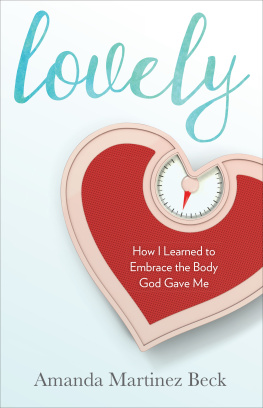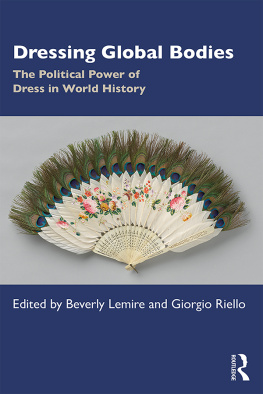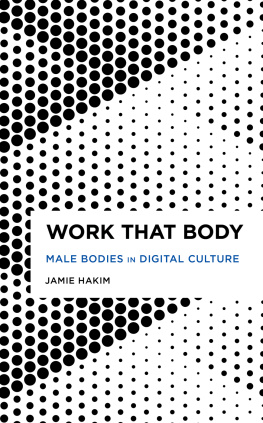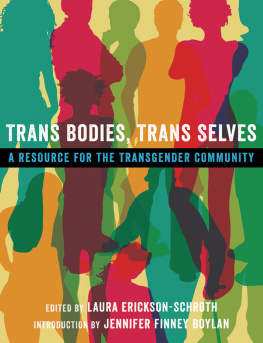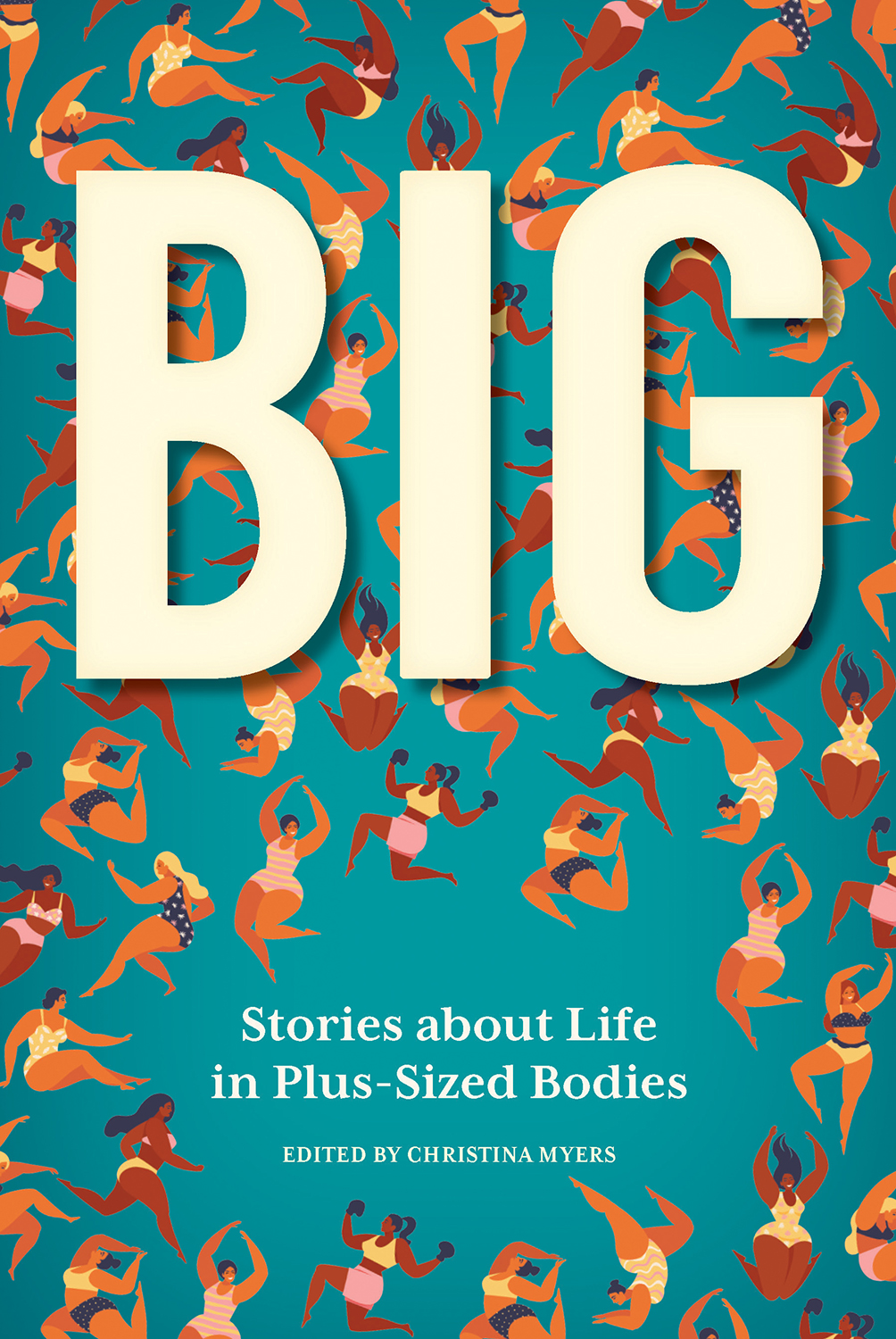Big
Copyright The Contributors 2020
All rights reserved. No part of this publication may be reproduced, stored in a retrieval system or transmitted, in any form or by any means, without prior permission of the publisher or, in the case of photocopying or other reprographic copying, a licence from Access Copyright, the Canadian Copyright Licensing Agency, .
Caitlin Press Inc.
8100 Alderwood Road,
Halfmoon Bay, BC V 0 N 1 Y 1
www.caitlin-press.com
Text design by Shed Simas / Ona Design
Cover design by Monica Miller
Cover image from iStock ID 1091423892
Printed in Canada
Caitlin Press Inc. acknowledges financial support from the Government of Canada and the Canada Council for the Arts, and the Province of British Columbia through the British Columbia Arts Council and the Book Publishers Tax Credit.



Library and Archives Canada Cataloguing in Publication
Big : stories about life in plus-sized bodies / edited by Christina Myers.
Other titles: Stories about life in plus-sized bodies
Myers, Christina, editor.
Canadiana 20190192445 | ISBN 9781773860213 (softcover)
LCSH : Body image. | LCSH : Discrimination against overweight persons. | LCSH : Discrimination against overweight women. | LCSH : Overweight persons. | LCSH : Overweight women. | LCGFT : Essays.
LCC BF 697.5. B 63 B 54 2019 | DDC 306.4/613dc23
Big
Stories about Life in Plus-Sized Bodies
Edited by Christina Myers
Caitlin Press
To the writers in this book, who are brave and bold and full of magic
Contents
Introduction
Solid.
It was, so far as I can recall, the first word attributed to my body. It felt neutral and benigna biological fact, not an emotional observation. In truth, I was solid. Strong and tall and built in a way that made me feel capable of anything I wanted or needed to do. I was the girl who could reach the top shelf and open jars and help teachers carry heavy boxes and outpace boys on the track and the tennis court.
On a bell curve of bodies, mine always fell somewhere outside the averagea little bit taller, a little bit broader, earlier to develop, faster to mature. But it worked for me. Solid wasnt an insult; it was an ideal, like the house built not of straw or twigs, but of bricks that could withstand a dangerous wolf outside its front door.
I didnt have the vocabulary or insight to say it as a child, but I felt at home in my body.
This wasas it is for many womenshort-lived.
The safety I felt inside my body, the notion that my body and I coexisted in harmony, could not survive. In a world in which controlling and perfecting our bodies is the most important job, project, obsession and goal that a woman can have, it would have been impossible to reach the end of childhood feeling as benign and neutral about a word like solid as I did in the beginning.
Over time and for a million different reasons, solid became something to wish awayand eventually solid would be replaced by countless other words, attached to me by the culture I grew up in, by other people (both those I loved and strangers) and most of all by myself.
No one knows the power of words, of the words we use to describe bodies, more acutely than a woman who lives in a body that has been deemed imperfect and wrong because it is too big to fit into the very narrow definition of being the right size.
What words do we use to define ourselves? What words do others use? Which of these are loving and which are hateful? Which words have stigma and which words can be reclaimed? Which words can be powerful and in what ways? Most of all, who decides?
I spent a lot of time thinking about these questions while working on this project, considering and reconsidering the implications of the words inside these pages and the words on the cover.
Why BIG , as a title? Why not large or fat, Rubenesque or zaftig? How about curvy, plus-sized, BBW ? Maybe thick, or chubby, or chunky, or obese? Some speak to physical size, some to sexuality, some to medical textbook definitions, some to the ways we dress or live, some to how we view ourselves or are viewed by others, be they strangers or the most intimate of partners.
All of them fit, in one way or another, generally if not universallybut these words all mean different things to different people. And, maybe more importantly, the words we use often mean less to us in their actual definitions than in the way in which we use them.
As an adult, I had gotten in the habit of describing myself as sturdy. My body had changed over the years. The bookends of puberty and motherhood had altered it the most, along with genetics and a rotating carousel of diets and philosophies that vacillated between self-loathing and self-love. I have been a size 14 and a size 24, and everything in betweenmore than once. But Ive always remained, physically and emotionally, solid: still the tall girl, the strong girl, the capable girl. I was and am proud of all the things I could do with my body because it was built this way. Calling myself sturdy felt safe, a variation on a theme; like its sister, solid, it was a word that was neutral compared with other possible words, most of which felt loud or controversial or, worst of all, shameful.
Im sturdy, Id say, usually with a wink or chuckle. Id have made a great farm wifebig child-bearing hips, strong enough to pull a plow, Id just work hard all day toting water and chopping wood.
It was a false front: a feigned implication that I embraced my body, under the guise of vague words and a dash of humour.
It wasnt until someone close to me called me out on it, several times, that I was forced to re-evaluate what I really meantand, by extension, what I really thought.
The way you say that is not kind to yourself, they said. You dont mean it in a good way.
I hated to admit it, but they were right. And it wasnt the word itselfit was the way I used it, a masquerade of self-acceptance.
But Im also keenly aware that someone else, using the same word in a different way, would have an entirely different intent, an entirely different tone, an entirely different meaning.
So what words, then, should I use? What words should any of us use? It is not an uncommon question these days, but the decision is ultimately so personal that Im not convinced there is a right or best answer. What honours one person does not honour another, and removing a word from the cultural context in which it exists is more or less possible from one person to another, largely in relation to our own privileges or lack of them. We are too great a mix of our own intersectionsthe ways our personal histories, our families, our memories, our race, our genders, our sexual identities, our relationships and our communities have shaped us are so distinct and uniqueto ever be on the same page, at the same time, about what words are the best.
Big is a simple word, with complicated implications. It is always a relative term, dependent on the unspoken comparison of something that is not as big


